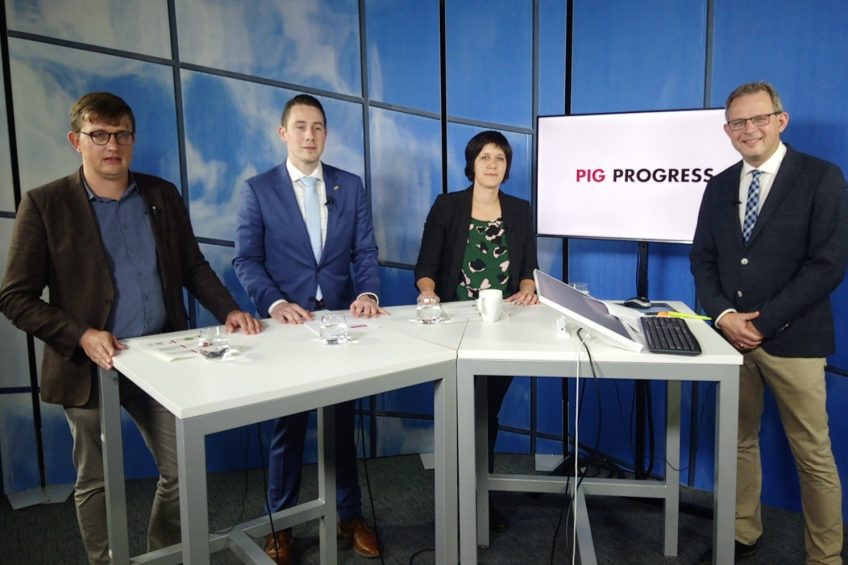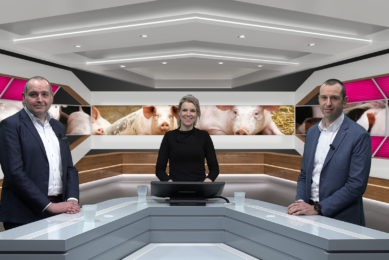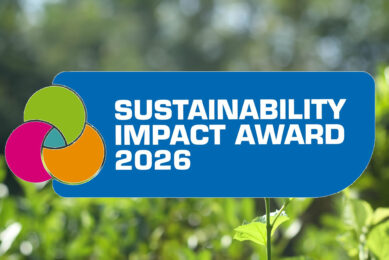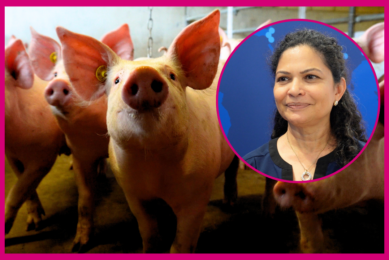On demand: Webinar on sustainability in pig production

If sustainability would be a person, than he would certainly have many faces. So much became clear during an insightful webinar on the theme of ‘Sustainability in swine production.’
The webinar, held on September 4, 2018, featured 3 speakers who, each from their own discipline, shed their light on sustainability in swine production. The term has become a buzz word, with many speakers referring to the year 2050 and how to feed the world by then while still caring for the planet as well. The question remains: what can we do nowadays to reduce our footprint, to do more with less?
Technology in swine barns
Cutting-edge technology on swine farms might well hold part of the answer to the sustainability issue. After all, sensors can help swine producers to figure out if temperatures are too high or too low, if the humidity levels are acceptable, if butyric acids reach too high levels – to name a few. All these methods form part of the ‘Smart Stable’, a project promoted by Dutch agency Connecting Agri&Food and presented in the webinar by project manager Angela van der Sanden.
Watch webinar
With modern technology, these sensor data can be tracked, traced and addressed. Early detection after all means that producers can quicker act and avoid unnecessary loss of production efficiency. In the future, the Smart Stable concept might also be equipped with elements like water quality or sound – leading to even higher sustainability levels.
Feed additives and sustainability on pig farms
Inefficient use of feed is also a part of the sustainability problem. After all, if pigs can use their feed more efficiently, in the end, less feed is needed to grow the pigs – and this feed in turn does not need to be grown in the first place.

Want to know more information on sustainability in livestock production? This Special Edition will be published soon
Speaker Dr Matias Jansen of feed additive company Kemin therefore touched on the theme of nutrient absorption in pigs. The more feed can be absorbed, the less is excreted and ending up in the environment. He touched on Lysoforte Extend, an active ingredient complex to improve digestion, consisting of an emulsifier, monoglycerides and lysophospholipids. He backed up his presentation with data as well.

Pig gut health and sustainability
Health issues are yet another way why swine farms may not run as efficiently – and economically and ecologically friendly – as they might do. Especially gut health problems in this respect can make or break the environment in a pig house – now more than ever with antibiotics as well as zinc oxide on the way out. In the webinar, Nuscience’s Kobe Lannoo held a plea to help establish a healthy pig gut environment – and to maintain it that all the way through the production phase.

The company introduces its ’Aim For Zero’ programme (see above) at the webinar, starting with a digital benchmark tool combining nutrition, health and management and acting as an objective basis for the exchange of managerial and nutritional expertise. Together with Vitazero pig producers achieve a good gut health (and zero antibiotic usage).











